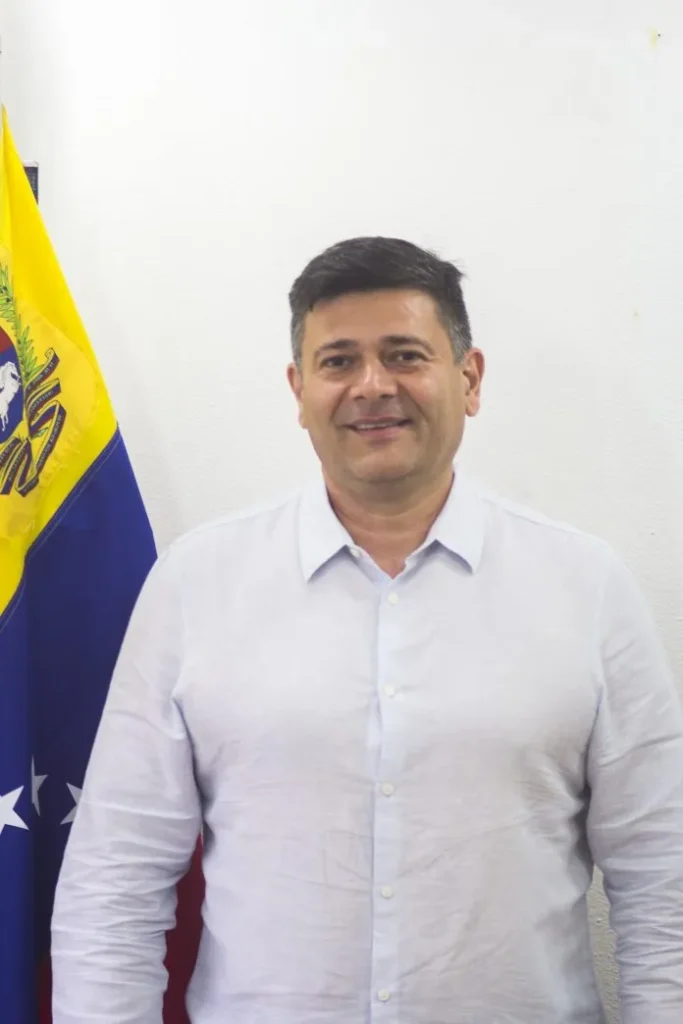Introduction
In the aftermath of the recent controversial elections in Venezuela, significant tension has arisen, particularly involving opposition figures. One prominent case that has drawn attention is the sudden and unexplained detention of Freddy Superlano, a leading opposition member, along with his assistant, Renso Salinas, and driver, Rafael García. The disappearance of these individuals has sparked considerable concern among their supporters and the international community. This article provides an in-depth exploration of the situation, detailing the events leading up to their detention, the responses from their political party and family, and the broader implications of this incident.
The Disappearance of Freddy Superlano
Detention Details
On a recent Tuesday, Freddy Superlano, a well-known Venezuelan opposition leader, was detained under distressing circumstances. According to reports from Vente Venezuela (VV), a political party with which Superlano is affiliated, the detentions were carried out by individuals described as “masked officials.” Alongside Superlano, his assistant Renso Salinas and driver Rafael García were also taken into custody. The nature of their detention has raised numerous questions and concerns about their well-being and the reasons behind their arrest.
#Urgente | Freddy Superlano, diputado y dirigente de @VoluntadPopular fue detenido en Caraca,junto a dos miembros de su equipo por funcionarios encapuchados.
Alertamos a la comunidad internacional sobre esta nueva ola de detenciones contra líderes políticos en Venezuela. pic.twitter.com/rmCvbNydm6
— DDHH Vente Venezuela (@VenteDDHH) July 30, 2024
Aurora Silva, Superlano’s wife, has been actively seeking information about her husband and his associates. She has made numerous attempts to locate them by visiting various detention centers in Caracas. Silva’s efforts have included inquiries at the Bolivarian Intelligence Service (Sebin) and the National Bolivarian Police (PNB). However, she was reportedly informed that Superlano, Salinas, and García were not held at these facilities. Her search extended to the Directorate General of Military Intelligence (DGCIM), where she faced further delays and a lack of information.
Political Reactions and Demands
The political party Voluntad Popular, which Superlano coordinates, has voiced strong concerns over his unexplained detention. They have issued statements demanding immediate access to verify his health and safety. The party’s public statements underscore the urgency of the situation and the need for transparency regarding Superlano’s condition. The prolonged uncertainty has been a cause for alarm, prompting Voluntad Popular to call for international attention and pressure on Venezuelan authorities.
According to Voluntad Popular, it has been over 30 hours since Superlano’s detention, and there has been no confirmation regarding his health status. The party has accused the Venezuelan government of escalating its repressive tactics against democratic activists, particularly in the wake of the recent elections. They have highlighted the alarming nature of the detentions as part of a broader pattern of governmental repression.
The Political Context
The Recent Elections
The detentions come against a backdrop of significant political turmoil following Venezuela’s recent elections. The official results, which declared incumbent President Nicolás Maduro the winner, have been met with widespread skepticism and allegations of electoral fraud. The Council of National Electoral (CNE) announced Maduro’s victory, but the process and the results have been heavily contested both domestically and internationally.
The opposition, including figures like Freddy Superlano, has expressed strong doubts about the fairness and transparency of the electoral process. These doubts have been exacerbated by reports of irregularities and lack of access to crucial election data. The dissatisfaction with the election results has led to widespread protests and increased tensions between the government and opposition.
Government Repression
The Venezuelan government’s response to dissent has been a significant concern in recent years. The detentions of opposition leaders and activists are seen as part of a broader pattern of governmental repression aimed at stifling criticism and maintaining control. The government’s use of force and suppression tactics has been widely documented, raising serious questions about human rights and the rule of law in Venezuela.
The arrest of Freddy Superlano and his associates is viewed by many as an attempt to intimidate and silence opposition voices. The timing of the detentions, coming shortly after the contentious elections, has further fueled suspicions about the motives behind these actions.
Reactions from Human Rights Organizations
Concerns from Human Rights Groups
Human rights organizations have expressed alarm over the recent detentions and the broader context of repression in Venezuela. Groups like Foro Penal have been actively documenting cases of arbitrary detention and other human rights abuses. The lack of transparency and the reported conditions of detainees have been a focus of their advocacy efforts.
Human rights advocates have called for immediate action to ensure the safety of those detained and to hold accountable those responsible for the repressive measures. The international community has been urged to apply pressure on the Venezuelan government to uphold human rights standards and to address the concerns raised by the ongoing political crisis.
Calls for International Attention
The international response to the situation has included calls for increased scrutiny and intervention. The detention of prominent opposition figures has drawn attention from global leaders and organizations, who have expressed concern about the implications for democratic governance and human rights in Venezuela. The international community’s reaction has been a crucial factor in shaping the discourse around Venezuela’s political crisis and the treatment of its opposition.
Conclusion
The disappearance of Freddy Superlano, Renso Salinas, and Rafael García has highlighted the severe challenges facing Venezuela’s political landscape. The lack of information about their whereabouts and condition has raised significant concerns about their safety and the broader implications for Venezuelan society. The political and human rights context surrounding these detentions underscores the urgent need for transparency, accountability, and international support.
The situation remains fluid, with ongoing efforts by Superlano’s family and political allies to obtain information and advocate for his release. The international community’s response will be crucial in addressing the human rights concerns and supporting the democratic aspirations of the Venezuelan people.
For continued coverage and in-depth analysis of Latin American affairs, please visit our Latin America section.


